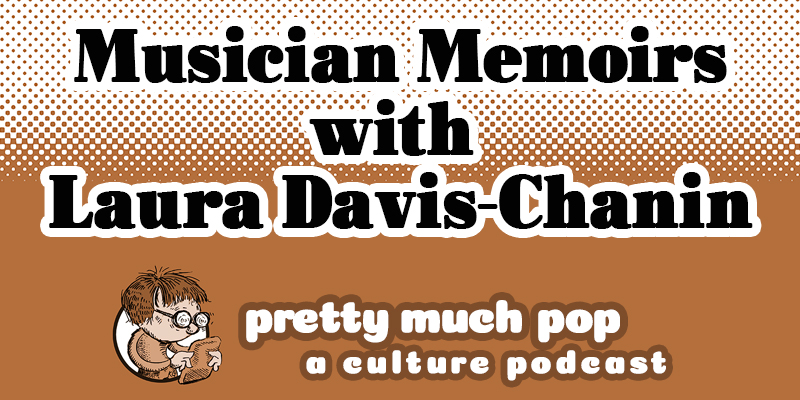
There’s been an explosion of rock and roll autobiographies in recent years, with pretty much every music legend (and many others) being invited by some publisher or other to write or dictate their story. What’s the particular appeal of this kind of recounting, what’s the connection between writing and reading these books on the one hand and producing and listening to the actual music on the other? Do we get a roughly equivalent benefit from a biography, documentary, or film depiction of the person’s life?
Your hosts Mark Linsenmayer, Erica Spyres, and Brian Hirt along with guest Laura Davis-Chanin, author of her own music memoir, each picked a book, covering Elvis Costello, Carrie Brownstein, Ozzy Osbourne, and Debbie Harry respectively. Reflecting on these reading experiences we compare the author’s purposes in writing the book, how confessional or drug-addled or twisted the story is, what is emphasized and what’s not, and what resonated in the story beyond the idiosyncratic recounting of that person’s life.
Check out Laura’s two books, hear her talk about her musical adventures on Nakedly Examined Music, and hear her discuss classic literature on Phi Fic.
Some of the NEM episodes where Mark talked with guests about their auto-biographies featured Chris Frantz of Talking Heads, Jim Peterik of Survivor, Andy Powell of Wishbone Ash, Danny Seraphine of Chicago and John Andrew Fredrick of The Black Watch.
We didn’t use much research for this episode, but you can read lists of particularly good music memoirs from Rolling Stone and The Guardian. The Oakland Press has an article about music biographies and autobiographies emerging at the end of 2020.
Hear more of this podcast at prettymuchpop.com. This episode includes bonus discussion that you can access by supporting the podcast at patreon.com/prettymuchpop. This podcast is part of the Partially Examined Life podcast network.
Pretty Much Pop: A Culture Podcast is the first podcast curated by Open Culture. Browse all Pretty Much Pop posts.
Why the Flood of Musician Memoirs? An Exploration by Pretty Much Pop: A Culture Podcast #84 is a post from: Open Culture. Follow us on Facebook, Twitter, and Google Plus, or get our Daily Email. And don't miss our big collections of Free Online Courses, Free Online Movies, Free eBooks, Free Audio Books, Free Foreign Language Lessons, and MOOCs.
from Open Culture https://ift.tt/3sQ68Nj
via Ilumina
Comments
Post a Comment